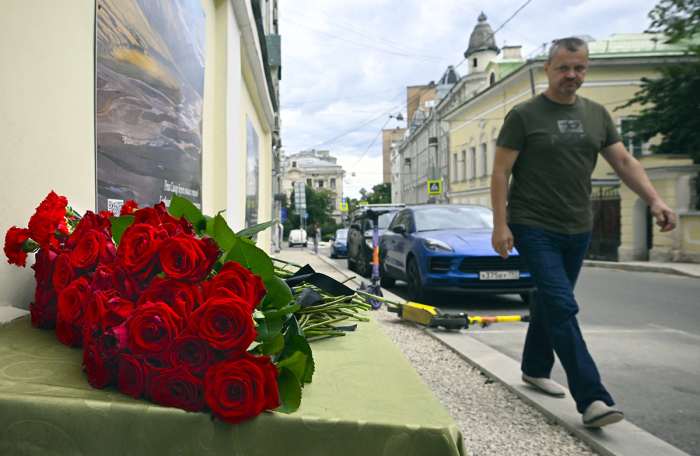Priest among 19 killed in terrorist attacks on churches, synagogues in Russia

A coordinated series of attacks in Russia’s southern Dagestan province targeted two Orthodox churches, two synagogues and several police posts on Sunday. In the assault, an Orthodox priest’s throat was slit, and at least three other civilians and 15 police officers were killed. The day of violence shook a region that has experienced an Islamist insurgency.
As of early Monday, the 66-year-old Orthodox priest, three civilians and 15 law enforcement officers had been declared dead in the violence, which took place in the cities of Derbent and Makhachkala, about 75 miles apart, as per preliminary data released by Russia’s national Investigative Committee, CBS News reported.
At least six gunmen had also been killed by security personnel, CNN said, quoting Sergey Melikov, the governor of the Dagestan Republic, who also indicated that additional gunmen were neutralized during the sweeping counter-terrorism operations that followed.
The violence appeared to be meticulously planned. The Russian Interior Ministry reported the attackers used heavy firepower and executed the assaults with chilling precision.
In Derbent, assailants stormed a synagogue and two nearby Orthodox churches, carrying out an attack that claimed the lives of multiple police officers and the priest, identified as Fr. Nikolay, who was very ill, according to CNN. The synagogue, a building of considerable historical significance and a UNESCO World Heritage site, was set ablaze, and images circulating on social media showed flames engulfing the structure, marking a somber moment for the ancient Jewish community residing there.
Simultaneously, in Makhachkala, gunmen opened fire on a police traffic post, escalating the violence that would culminate in several police fatalities and injuries. The attacks extended to a second synagogue in Makhachkala, where gunfire was reported but no worshipers were present at the time.
Last October, following the outbreak of war in Gaza, rioters carrying Palestinian flags smashed glass doors and stormed through Makhachkala airport, searching for Jewish passengers from a flight arriving from Tel Aviv, the Telegraph noted.
The latest attacks occurred about three months after ISIS-K, an ISIS affiliate, claimed responsibility for a devastating assault at Crocus City Hall in Moscow, the deadliest terrorist act in Russia in recent years which resulted in the deaths of more than 140 people.
Russian authorities, who are still piecing together the motives, have not yet provided a definitive account of the orchestrators behind these tragic events, which have left the local communities in deep mourning and raised serious questions about regional security.
Authorities have suggested the violence might be linked to an ongoing insurgency in the region in the North Caucasus, a predominantly Muslim area with a history of separatist and militant activity — a turbulent past, worsened by spillovers from conflicts in neighboring Chechnya and the geopolitical tensions stemming from Russia’s involvement in Ukraine.
Early reports from Russian state media suggested that the attackers might have included local militants, possibly encouraged by external influences, although these claims remain unsubstantiated.
In response to the attacks, Dagestan has declared three days of mourning beginning Monday. Flags will be flown at half-staff and all entertainment events have been canceled as the community comes to terms with the scale of the tragedy, according to The Guardian.
Last week, Russian special forces rescued two guards and killed six men affiliated with IS who had taken them hostage at a detention center in the southern city of Rostov.
The investigation, led by Russia’s National Anti-Terrorist Committee and the Investigative Committee of Russia for the Republic of Dagestan, was ongoing, as of Monday.




























